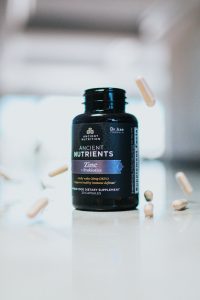 At LIV Fitness in Dublin, CA, a lot of interest in diet and the effects on the immune system developed during covid-19. Individual supplements or consuming foods high in certain nutrients like zinc and vitamin D were often the center of those investigations. Studies show that having adequate zinc in your diet can help boost your immune system and that a deficiency in zinc can make you more susceptible to illness. No matter what the nutrient is, there’s a negative effect if you’re deficient. On the other hand, taking too much can also create a problem. How do you balance it? You eat healthily. While you can take too many supplements, it’s hard to overdose on a healthy diet.
At LIV Fitness in Dublin, CA, a lot of interest in diet and the effects on the immune system developed during covid-19. Individual supplements or consuming foods high in certain nutrients like zinc and vitamin D were often the center of those investigations. Studies show that having adequate zinc in your diet can help boost your immune system and that a deficiency in zinc can make you more susceptible to illness. No matter what the nutrient is, there’s a negative effect if you’re deficient. On the other hand, taking too much can also create a problem. How do you balance it? You eat healthily. While you can take too many supplements, it’s hard to overdose on a healthy diet.
The benefits of zinc have been known for decades.
Zinc supplements can be used under certain conditions, when even healthy diets don’t provide enough zinc. For instance, impressive results come from taking lozenges or syrup with zinc in the first 24 hours of a cold. It’s been shown to help shorten the duration of the cold. Other research shows that people with macular degeneration can benefit from increasing zinc levels to slow the progression of the disease. Zinc can even boost wound healing.
The lack of zinc can affect the cells that provide immunity.
There are two types of immune systems in your body, the innate or general immune system and the adaptive or specialized immune system. While they work together, they each do different things. The innate system is the first line of defense and handles issues like killing bacteria that may have entered through a cut or forming a barrier to prevent bacteria from entering, for example skin or mucus. The general immune cells activate the specialized cells if the germs get into the body. If you lack zinc, not only does it affect your immunity, but it also alters the cell defense and increases the potential for inflammation. Zinc plays a role in both the creation and maintenance of immune cells, both innate and adaptive.
Most people will benefit from eating foods high in zinc, but a few groups might need more.
The foods that contain the most zinc include meat, shellfish, legumes, seeds and nuts, eggs and dairy. Legumes need special processing to reduce the phytates that affect zinc absorption. Some groups tend to be more susceptible to zinc deficiency, such as vegetarians, children, older adults pregnant and lactating women. For children, zinc deficiency may occur from diet. While an unhealthy diet is one cause, too much vegetable acid salts and crude fiber in cereal or too many refined foods can be the cause. In seniors, diet is also a problem, but so is reduced absorption.
- If you follow a plant only based diet, you need approximately 50% more zinc, due to reduced bioavailability. It comes from increased phytate, iron and calcium.
- Zinc is the driving force behind hundreds of chemical reactions throughout the body. It helps reduce oxidative stress and is necessary for neurotransmitters in the brain.
- Nursing home studies showed administering zinc to patients could reduce the potential for pneumonia. Combining zinc with a nutrient dense diet can also slow the aging process.
- You need zinc every day to function properly, since the body doesn’t store zinc. Our meal planning service can provide you with a diet that will provide the necessary daily zinc.
For more information, contact us today at LIV Fitness
